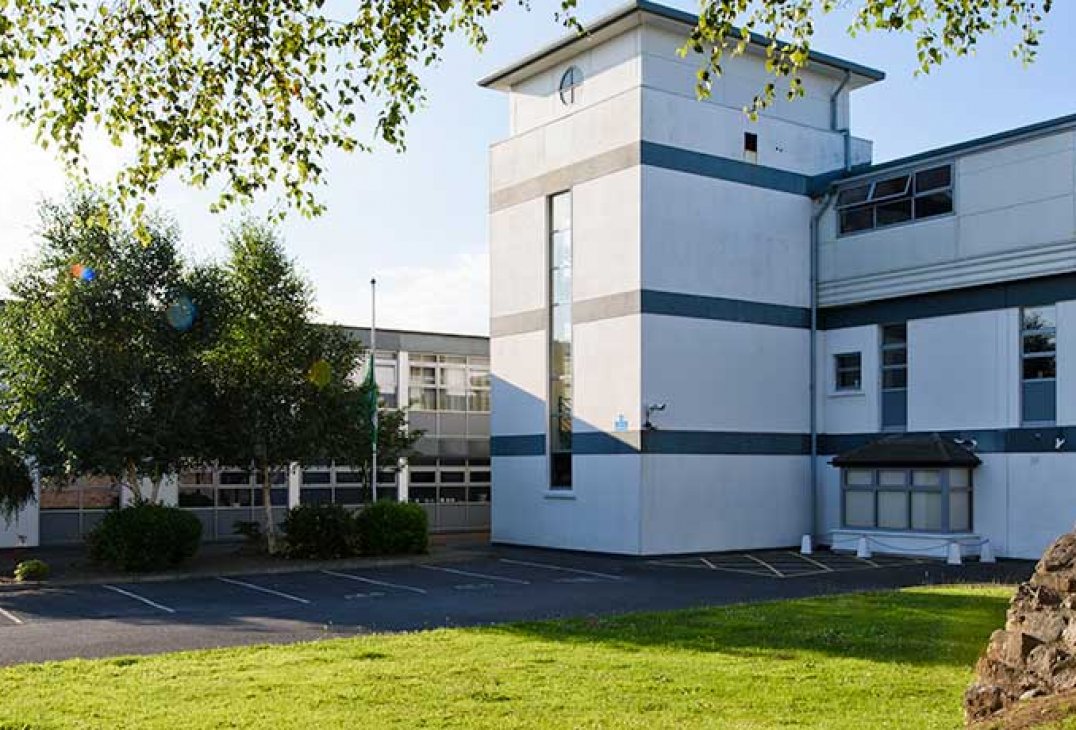School Self Evaluation (SSE) Summary 2018/19
As part of SSE in Colaiste Muire this year we focused on the following aspects of Teaching and Learning:
1 Team Teaching
2 Improving feedback to students with a long term view to increasing levels of student engagement with feedback
3 Participation in the Step Up Project – organised by the Department of Education
& Skills
Team Teaching
Team teaching involves the presence of a second teacher in a class to assist the main classroom teacher. Team teaching was first introduced in Coláiste Muire in September 2017. All first and second year maths classes were timetabled to have an additional teacher for one period per week. It was also introduced in some Leaving Certificate Applied (LCA) classes. During 2018/2019 all first year English classes were timetabled for a team teacher for one period per week to assist with the Accelerated Reader Programme. The number of team teaching periods assigned in LCA classes was increased also.
Students and teachers were surveyed on the benefits of the additional teacher. Students indicated that they could ask more questions in class, that there was an extra teacher there to help them and they could get help without disrupting the entire class or drawing attention to themselves. They expressed a wish to have a team teacher more often in class.
Teachers found it very beneficial for sharing of strategies with colleagues, assistance in checking homework and supporting students who may need additional help. The main disadvantage was the difficulty is assessing the impact in the long run, due to the fact that it happened only once a week.
For 2019/20 all first and second year and some third year maths classes have been timetabled for a team teacher for a minimum of two periods per week. The majority of LCA classes have a team teacher for all periods and first year English classes have a team teacher once a week. It is hoped to evaluate the programme at the end of the academic year.
Feedback to Students
Subject Departments collaborated during the year to improve the quality of feedback given to students on their work. Some departments developed feedback templates for students, focusing on the key skills/ learning components for their subject. A number of departments explored digital technologies as a means of giving feedback to and receiving feedback from students. This work is ongoing and feedback methodologies will be reviewed and updated during the year. It is important that students take feedback on board and reflect on their learning in order to improve their own learning outcomes in the future.
Step Up Project
Coláiste Muire was chosen as one of 9 schools to participate in the Step-Up project, an initiative under the School’s Excellence Fund. This project challenges schools already at an ‘Effective Implementation’ of the Junior Cycle Framework to ‘step up’ to a ‘Highly Effective’ level of implementation, through working with the Inspectorate and Junior Cycle for Teachers.
The area of focus for our project is ‘praxis’, which is reflecting with the intention of using that reflection to create action. Our current second year students were involved in a 9 week intervention last year— as first years— in the subjects of Business, English and Science. The focus of these 9 weeks was to get students familiar with reflective tools and look at the different ways that they can reflect on their own work and learning, in order to enhance their learning and school experience.
This year, second year students— through the same subject areas— will be building on the work of last year and focusing on how they can extend reflection into action. Specifically, they will be evaluating how they can improve their learning and achieve more effectively at Junior Cycle through conscious and deliberate action.
Role of Parents:
This is what you can do to help:
• Encourage your daughter to discuss what she has learned at school with you.
• Encourage your daughter to avail of the additional supports in classes where there is a team teacher present by identifying questions she may have about the current topic in advance.
• Review any feedback she received from her teachers with her and identify areas where she did well and where she may improve.
• Encourage her to take the feedback on board in a positive way and use it to guide her in her next assignment.

